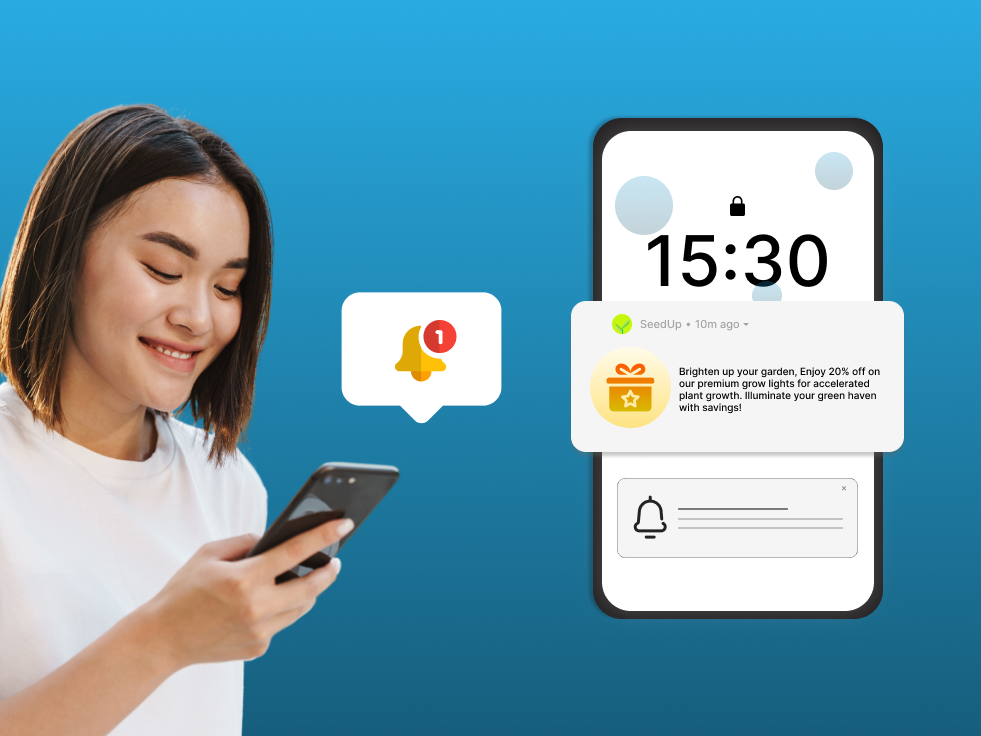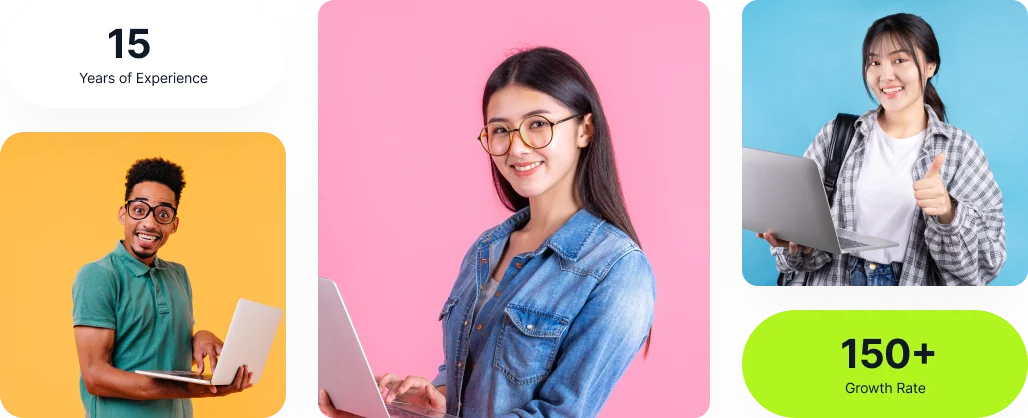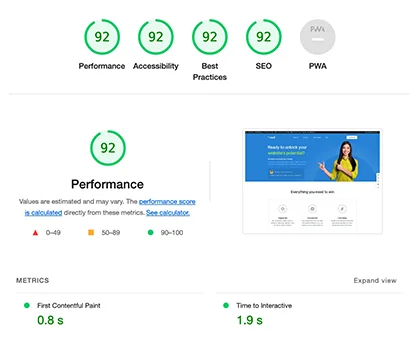How To Drive User Engagement With Personalized Push Notifications

Ever wondered? Where do those Personalized push notifications you receive on your phone occasionally come from? What is the primary intent behind receiving such notifications? Why do they always pop up from time to time?
In today’s app-driven world, Personalized notifications have become increasingly popular in recent years as apps, brands, and marketers strive to provide tailor-made experiences to their customers.
In this article, we will explore all the possible benefits, challenges, and best practices of this powerful marketing strategy of personalized push notifications to increase user traffic and engagement with the most innovative and exciting method ever!
What Are Personalized Push Notifications?
Personalized notifications are customized messages sent to users to grab their attention and excite them to engage with the app.
They are generally short, attention-grabbing, and attractive, with a clear call to action that encourages users to take specific actions, such as downloading the app. Using push notifications could increase the retention rate by up to 130%.
A balanced approach to using these personalized notifications is a must because not maintaining an adequate balanced approach to deciding the number and frequency of such notifications could irritate the user. They could also reduce the user’s interest and yield negative results in the long run.
How Do These Personalized Push Notifications Work?
Personalized notifications use data about individuals to make tailor-made content and messages. They work focusing on these:-
Collecting User Information
Apps can collect a wide range of user data, such as their behavior, location, preferences, and demographics, through various means, such as user interactions, registration forms, and tracking mechanisms.
Analyzing The Data
Once we collect the data, the next important step is to analyze it. To identify the user’s basic patterns, preferences, and interests.
This segmentation process helps categorize the data based on user behavior, interest, and demographics and is effectively used to create personalized push notifications.
Creating Personalized Content
Personalize content for each user based on their data. It includes images, text, videos, links, and a call to action that caters to their preferences. We use direct and easy-to-understand language, keeping sentences short and including only necessary information. By using verbs instead of nouns, we increase clarity and engagement. The content for each user segment includes personalized images, text, videos, links, and a call to action tailored to their preferences.
Choosing The Right Time
After finalizing the message content and timing, it must be sent to the recipient through different channels such as push notifications, email, SMS, or in-app messages.
The delivery method selection depends on several factors, such as user preferences and the nature of the message.
Learning And Improving
After sending out notifications, their performance is closely monitored, including metrics such as click-through rates, conversions, and user feedback. This data is then collected and analyzed to refine personalized strategies, optimize content, and improve overall engagement and effectiveness.
Types Of Personalized Push Notifications
Personalized notifications can be of different types; app marketing companies can use these to send them to their targeted users, making a substantial impact on the user’s mind and attracting and retaining them for a long time.
Onboarding Messages
Upon installation, the app sends mobile notifications to welcome users.
These include personalized tips, tutorials, and prompts to help users explore the app’s key features easily.
App Updates And Maintenance Notices
These push notifications include app updation and maintenance messages that remind the user to update the app to enjoy the latest features effectively.
It helps create transparency and informs users about changes or disruptions to the app’s availability.
Personalized Content Recommendations
These notifications suggest personalized content to the user, such as articles, videos, or playlists, based on the user’s interests, preferences, or past interactions within the app.
Re-Engagement Campaigns Notifications
These mobile notifications target the inactive user’s personalized messages to encourage them to return to the app. They may offer incentives, content recommendations, or reminders of the app’s value proposition to reignite user interest.
What Are The Advantages Of Using Personalized Notification?
Personalized notifications aim to make the user experience more enjoyable and engaging; these popup notifications entice the user’s interest with time and develop a loyal user base.
Here are some of the advantages of the same:-
Increased User Engagement
Personalized notifications can improve user engagement with the app by sending tailored messages based on their interests, preferences, and behavior.
It would increase user retention, leading to high click-through rates, interactions, etc. Sending push notifications on time maintains an interactive and engaging environment with the user.
Improved Conversion Rates
Personalized push notifications help more effectively get conversions than generic messages by delivering targeted content based on data such as preferences, etc.
Can generate more leads and increase push notification customer engagement with time.
Better Retention And Loyalty
Push notifications help the user feel more valued, which helps build retention and loyalty. Personalized notifications deliver valuable content; the app marketing companies can keep users engaged with their apps.
Personalized push notifications can help create a more personalized and memorable brand experience, fostering stronger emotional connections with users over time.
Providing Data-Driven Insights And Optimization
Personalized push notifications provide valuable insights into user behavior, preferences, and engagement patterns.
By analyzing open rates, click-through rates, and conversion rates, the company can identify improvement opportunities and tailor their approach to meet users’ needs and expectations better.
What Are The Challenges Of Personalized Push Notifications?
As we have seen, personalized push notifications provide impressive benefits, but the company also faces some challenges.
Balancing Privacy And Data Collection
Ensuring privacy while collecting users’ personal data for sending such push notifications could be challenging, requiring following practices that don’t promote it.
Avoiding Notification Overload
Ensuring the perfect number of notifications for an app is vital. Striking a balance is critical, as inundating users with too many messages can be overwhelming.
Getting Personalization Right
Making the personalization right is the most crucial thing to take care of as messages pop up on mobile phones that should spark the user’s interest in opening the app and exploring.
Encouraging Opt-Ins
Opt-in refers to the process by which a user actively agrees or consents to receive certain communications or features. Convincing users to opt-in to receive push notifications can be a challenge. Offering the user something valuable in return becomes essential.
Dealing With Technical Glitches
The technical glitch can be a significant roadblock as it slows the delivery time, resulting in sending and receiving notifications on time. Properly dealing with those technical glitches should be the top priority for making it work smoothly.
How Appfillip Drives User Engagement With Personalized Push Notifications.
AppFillip is the leading app marketing agency that delivers customized mobile app marketing solutions that elevate your app’s visibility and drive organic growth, which will help you efficiently send personalized push notifications that drive more user engagement with time.
Our top priority is Providing mobile app marketing services that drive more user engagement with time and cultivating a loyal user base.
We understand the importance of personalized communication and are committed to helping our clients navigate these challenges effectively to drive success in their app marketing efforts.

